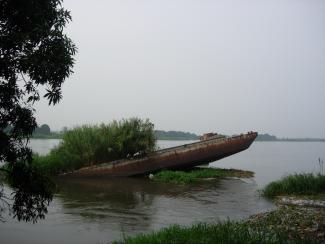Peace
Mobilising resources for peace-building

Any state is fragile after a war or a civil war, irrespective of the continent. Building peace and a functioning state is difficult, time-consuming and costly. At present, Africa in particular has many fragile states – the DR Congo, South Sudan, Libya, the Central African Republic are but a few. "Fragility", according to the African Development Bank, "is not a category of states, but can appear in many places and forms. In Africa, it is a product of dramatic social, economic and environmental changes."
Despite the amount of aid going to fragile states, many of them don’t seem to recover – and official development assistance (ODA) is diminishing. Global ODA declined by 2.4 % to net $ 133,526 million in 2011 (from the Development Assistance Committee countries), according to figures the Organisation for Economic Cooperation and Development (OECD) recently published. Despite all promises to increase aid, the trend is downward. It is therefore urgent to find feasible ways for improving statehood in post-conflict countries. According to the OECD, around 1.4 billion people worldwide live in fragile states, and more than half of the world’s poor will live in such countries by 2018.
The African Development Bank’s High Level Panel on Fragile States recently published a document on the matter. It identifies critical issues for ensuring peace,
including:
- more youth employment, so young men find an alternative to joining a militia,
- successful urbanisation, because cities tend to be overburdened by population growth and rising inequality,
- good governance in the extractive-industries sector, since conflicts often erupt over natural resources, and
- adaptation to climate change, as the impacts of global warming are compounding problems of land and water availability.
The overarching problems continue to be poverty and inequality, as the panel, which was led by Liberia’s President Ellen Johnson Sirleaf, points out: "Africa’s current pattern of growth is excluding large geographical areas and social groups, magnifying the risks of conflict and instability". The experts advise policymakers to invest in "regional frameworks for resilience" and make better use of "private sector and civil society capacity in delivering public goods and services." They also want donors to cooperate rather than compete.
The OECD, however, emphasises fiscal issues in its recent report. It states that though remittances from migrants have outgrown aid in some fragile states, most of the least-developed fragile states still depend on ODA. The OECD points out that fragile states hardly get foreign direct investments, so they must improve domestic revenue collection. Tax money should serve state building, the authors argue. If public services operate well, they insist, that will strengthen the social contract between the state and its citizens. Donors should therefore support fragile states in building the institutions for collecting domestic revenues, according to the OECD.
The OECD concedes that resource wealth often does not result in state building: "Over-generous tax exemptions awarded to multinational enterprises often deprive fragile states of potential revenues." The OECD wants donors to strengthen the governments of fragile states in their relations with multinational corporations and to help them to track revenue lost through illicit financial flows.
Sheila Mysorekar








